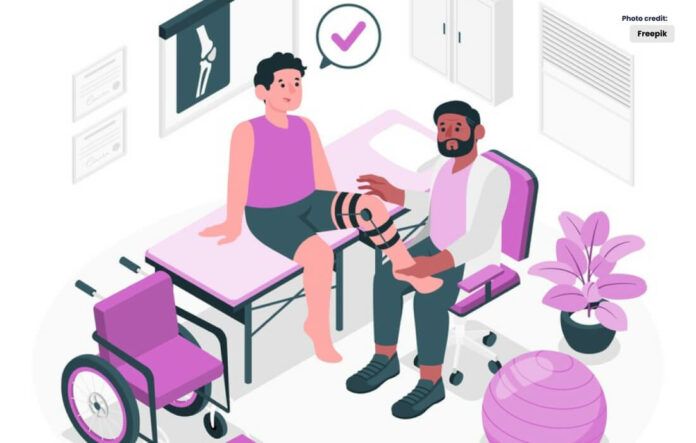Comprehensive care in recovery centers crucial for addiction support.
Recovery centers are essential for treating a variety of problems pertaining to addiction, mental health, and general wellbeing. For those looking to rehabilitate from mental health issues or escape the shackles of substance misuse, these institutions offer a controlled and encouraging atmosphere.
A Recovery Center: What Is It?
Often called a treatment facility or rehabilitation center, a recovery center is a type of specialist medical facility created to help people overcome mental health and addiction problems. There are several types of recovery programs, including residential, outpatient, and inpatient institutions, each providing a different degree of assistance and care. These facilities’ major objective is to support mental and emotional health while assisting people in achieving and maintaining sobriety.
The Importance of Rehabilitation Facilities
A better, drug-free existence and the devastating cycle of addiction are connected through recovery clinics. The following salient features underscore their importance:
A secure and encouraging setting
The availability of a secure and encouraging atmosphere is one of the main benefits of treatment centers. Addicts and people with mental health disorders frequently deal with a variety of difficulties on a daily basis. A lack of emotional support, peer pressure, and drug availability are a few examples of these difficulties. Rehab facilities provide a controlled environment in which these elements are reduced, allowing patients to concentrate on their healing.
Professional Counseling
Rehabilitation facilities employ medical specialists, therapists, and counselors, among other skilled and knowledgeable personnel. To guarantee that people receive the right care and assistance suited to their individual needs, this expert advice is essential. Additionally, it ensures the people’s security and welfare while they heal.
Tailored Care Programs
Every person is unique, and the road to recovery is very intimate. Recognizing this, treatment facilities create individualized treatment programs that cater to each person’s particular requirements and obstacles. Plans like this could involve life skills training, therapy, counseling, and detoxification.
Constant Monitoring and Care
During the initial phases of rehabilitation, inpatient recovery centers provide round-the-clock care and supervision, which is particularly crucial. This ongoing care guarantees that people are on the correct track to recovery and helps prevent relapses.
Prevention of Relapses
Relapse prevention techniques and tools are offered by recovery centers. These consist of coping mechanisms, methods for handling stress, and information on the dangers of substance abuse. Recovery facilities give people the tools they need to handle obstacles in their daily lives without turning to harmful behaviors.
The Services Rehab Centers Provide
Recovery facilities provide a wide range of services, many of which are beneficial to people’s overall recovery. Among these services are:
Exclusivity
In many rehabilitation programs, detoxification comes first. By eliminating dangerous chemicals from a person’s body, this procedure aids in their physical dependence recovery. Throughout this procedure, patients are attentively observed by medical personnel to guarantee their comfort and safety.
Counseling and Therapy
Sessions of both individual and group therapy are frequently included in programs at recovery centers. These sessions assist people in addressing the underlying reasons of their addictions or mental health issues and creating coping mechanisms. To repair relationships harmed by addiction or mental health problems, recovery centers frequently incorporate family therapy.
Life Guidance Education
The main goal of recovery clinics is to provide patients with useful life skills so they can face life’s obstacles head-on without using drugs. These abilities may include problem-solving strategies, time management, and communication.
Treatment for Dual Diagnoses
Co-occurring mental health issues commonly occur in those who are addicted. Recovery facilities frequently offer dual diagnosis care, treating the underlying mental illness and the addiction at the same time.
Support and Aftercare
Rehab centers do not close their doors after the program ends. They frequently provide aftercare and continuing assistance, such as access to counselors or therapists, alumni programs, and support groups. Sustaining long-term rehabilitation requires this ongoing support.
The Effects of Recovery Centers
Recovery centers significantly impact the lives of people and the communities in which they reside. They influence things in the following ways, to name a few:
Ending the Addiction Cycle
Rehab facilities are essential for ending the cycle of addiction. By offering a secure and encouraging atmosphere, they assist people in quitting drugs and forming better habits.
Enhancing Mental Well-Being
Rehab facilities provide the tools and counseling required for those with mental health issues to enhance their emotional wellness. The services offered help a lot of people rediscover happiness and a feeling of purpose.
Reestablishing Family Ties
Addiction can strain and harm family relationships. Family counseling and assistance are frequently provided by recovery programs, which helps to mend damaged connections and gives families an opportunity to reunite.
Lessening the Stress on Medical Systems
Recovery centers ease the burden on healthcare systems, which benefits communities’ general well-being. They lessen the need for emergency medical care by assisting in the management and prevention of disorders linked to addiction.
Conclusion
Recovery centers are places where those who are struggling with addiction and mental health problems can find hope. They provide an organized, encouraging environment where people can discover their route to recovery and wellness, acting as a lifeline to those in need. Recovery centers provide services and have a positive impact on communities and families in addition to the individual. In a society where mental health and addiction problems are still common, recovery facilities are an invaluable tool for those seeking sobriety and improved quality of life.




